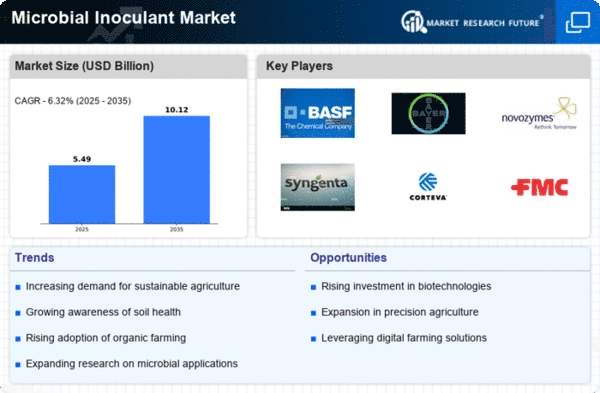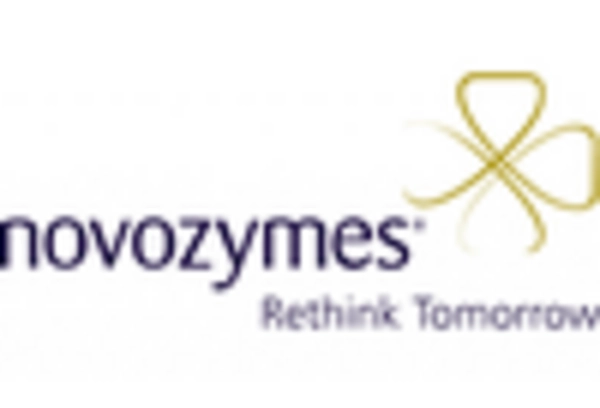Advancements in Biotechnology
Technological advancements in biotechnology are significantly influencing the Global microbial inoculant Market Industry. Innovations in genetic engineering and microbial formulations are leading to the development of more effective and targeted inoculants. These advancements enable the creation of products that can address specific agricultural challenges, such as nutrient deficiencies and pest resistance. As a result, farmers are increasingly inclined to adopt these advanced solutions, which can enhance crop yields and reduce reliance on synthetic fertilizers. The market is expected to grow at a CAGR of 6.31% from 2025 to 2035, indicating a robust future for biotechnological innovations in microbial inoculants.
Rising Awareness of Soil Health
There is a growing awareness among farmers and agricultural stakeholders regarding the importance of soil health, which is driving the Global Microbial Inoculant Market Industry. Healthy soils are crucial for sustainable crop production, and microbial inoculants play a vital role in restoring and maintaining soil fertility. Educational initiatives and outreach programs are helping to disseminate knowledge about the benefits of microbial solutions, leading to increased adoption rates. As farmers recognize the long-term advantages of investing in soil health, the demand for microbial inoculants is expected to rise, contributing to the market's projected growth to 10.1 USD Billion by 2035.
Regulatory Support for Bio-based Products
Regulatory frameworks across various countries are increasingly favoring bio-based products, including microbial inoculants, which is positively impacting the Global Microbial Inoculant Market Industry. Governments are implementing policies that promote the use of environmentally friendly agricultural inputs, thereby encouraging farmers to adopt microbial solutions. For example, the European Union has established regulations that support the registration and use of microbial inoculants, facilitating their integration into mainstream agriculture. This regulatory support is likely to drive market growth, as it aligns with global sustainability goals and enhances consumer confidence in bio-based agricultural products.
Growing Demand for Sustainable Agriculture
The Global Microbial Inoculant Market Industry is experiencing a notable surge in demand driven by the increasing emphasis on sustainable agricultural practices. Farmers are increasingly adopting microbial inoculants to enhance soil health and crop productivity while minimizing chemical inputs. This trend aligns with global initiatives aimed at reducing the environmental impact of agriculture. For instance, microbial inoculants can improve nutrient uptake and enhance crop resilience, which is vital as the global population continues to rise. The market is projected to reach 5.16 USD Billion in 2024, reflecting the growing recognition of microbial solutions in sustainable farming.
Chart Representation of Market Growth Trends
The Global Microbial Inoculant Market Industry is characterized by dynamic growth trends that can be effectively illustrated through various charts. These visual representations can highlight key metrics such as market size projections, growth rates, and segmentation by product type or application. For instance, charts may depict the anticipated increase from 5.16 USD Billion in 2024 to 10.1 USD Billion by 2035, alongside the CAGR of 6.31% for the period from 2025 to 2035. Such charts serve as valuable tools for stakeholders to understand market trajectories and make informed decisions.
















